And it’s all over. No, we don’t mean “movies” in general. The year is gone. It’s history. Though Hindi Cinema did come mighty close to simply ending in 2017, too. But we will try not to be too cynical here — hey, we’ve had some lovely independent films, so it’s not been all doom and gloom (actually, it has).
Like our last two immensely popular year-enders, we will now sift through the wreckage list the best and worst of 2017 by segregating the movies into some dubious and not-so-dubious award categories. This third edition of the iiF Awards (sounds fancy enough) is bigger and better than ever! Or at least that’s how the award-host jargon goes.
Here we go. No regional films included here, even though, as usual, some of the best Indian cinema of the year has been from everywhere but Mumbai. Don’t panic if you haven’t heard some of these names. That’s the point!
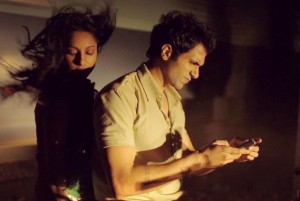
Best Film Nobody Saw: G KUTTA SE
This small Haryanvi film is one of the most brutal experiences at the cinema in 2017. It released in mid-June, and left a massive dent in our psyche — with some truly chilling, memorable scenes chronicling the mood of a stiflingly patriarchal region through a baton-passing narrative. Rahul Dahiya’s debut film, starring model-turned-actor Rajveer Singh and Neha Chauhan (once seen in Love, Sex aur Dhokha) amongst others, is a startling and uncompromising depiction of an India us burbies only read about. It has a conflicted protagonist torn between the outside world and inbuilt misogyny, a dog-killing scene, an unforgiving honour-killing sequence, and the kind of tension that mounts till we are unable to distinguish the difference between a disgusting film and a film about a disgusting world. The latter is true, not least because of the craft and a commitment to the kind of uncomfortable storytelling that no production house will ever bankroll.
Special Mentions: RIBBON, GURGAON
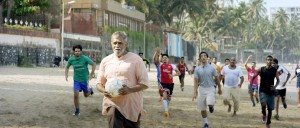
Best Film That Will Never Win An Award: TU HAI MERA SUNDAY
A real contender for the outright best-hindi-film-of-2017 pick, Milind Dhaimade’s debut feature is full of the kind of middle-class suburban Mumbai contrasts that make us love and hate the city simultaneously with great passion. It has warmth, depth, perceptivity, cynicism, positivity and the depiction of the kind of “city” friendships that many of us take for granted so often. All of us wish this film got its due, but there’s a victory in it existing — as a reminder to Hindi cinema, too, that it’s only the budget that decides the demarcation of “mainstream” and “independent” cinema. This combines the best of both: upbeat and expressive in tone, embracing cliches without once compromising on the larger message. Tu Hai Mera Sunday remains perhaps the most heartwarming experience at the movies this year.
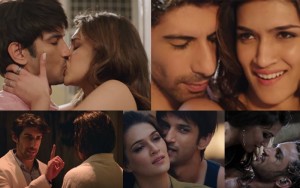
Best Worst Film: RAABTA
No words can do justice to the sheer awkwardness of Sushant Singh Rajput trying hard to act “spontaneous” and charming like Shah Rukh Khan in European locations. No feelings can do justice to the depression of having to watch Jim Sarbh string together a sentence as if he were a translation teleprompter overdosing on cocaine and Dhansak. And nothing can compensate for the collective hatred we now feel for Budapest for accommodating perhaps the most overbearing, shrill, senseless, pointless and shamelessly extravagant movie of all time. Director Dinesh Vijan should stick to producing films. Even the actor of the year, Rajkummar Rao, was so mortified at having to participate in this monstrosity that he became a unrecognisable prosthetic-heavy tribal with a “special thanks to” credit. This is a film that exists to lend itself to a debauched drinking game.
Special Mentions: Tubelight, Jab Harry Met Sejal
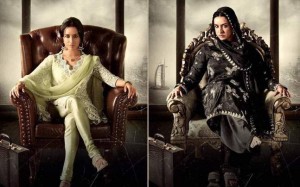
Worst Performer: SHRADDHA KAPOOR
OK Jaanu, Half Girlfriend and Haseena Parkar are probably three of the five worst Bollywood “masala” films of the year — and it has Shraddha Kapoor in common. She isn’t unbearable in Shaad Ali’s awful Mani Ratnam remake, but Kapoor outdoes herself in the other two. She romances the rain and makes Arjun Kapoor look a little better than a dead tree in the film adaptation of Chetan Bhagat’s worst book (paradoxical phrase), and she fills her cheeks with stale gulab jamuns to make Marlon Brando turn in his grave by playing Dawood’s infamous sister in yet another Apoorva Lakhia debacle. Her game is finally up. If Half Girlfriend hadn’t miraculously earned money at the box-office, Kapoor would have been exposed for being the worst poster-child of nepotism in decades. Aashiqui 2 feels like centuries ago, and she has progressively grown more and more talentless and monotonous with every role after that.
Special Mention: AJAY DEVGN (BADSHAAHO, GOLMAAL 156)
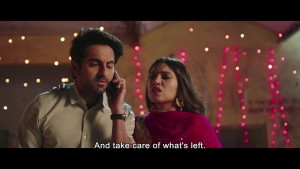
Best Comedy of 2017: SHUBH MANGAL SAVDHAN
It’s ironic that none of the shamelessly postured “commercial” comedies would even qualify for this section. All of them — Judwaa 2, Golmaal Again, Fukrey Returns, Mubarakan — are tasteless and unoriginal, lazily capitalizing on an existing franchise. R.S. Prasanna’s superbly detailed and performed film about Erectile Dysfunction isn’t a “comedy” in a traditional sense. But it’s a movie all about communication — and this aspect, itself, is perhaps India’s funniest failing. It embraces an absurdist to-hell-with-texture tone with a ridiculous “climax,” but there is much to be loved about the conversations, egos and reactions between the two desperate households. An old brotherly rivalry, a once-“rangeen” mother, a sincere veterinary doctor, an abnormally manly and hurt father and a limp biscuit form the colourful backdrop to Mudit (Ayushmann Khurrana) and Sugandha’s (Bhumi Pednekar) struggle to deal with the stiffness of companionship.
Special Mention: Hindi Medium, Bareilly ki Barfi

Best Film That Could Have Been: RANGOON
Rarely does Vishal Bhardwaj, the filmmaker and orchestrator par excellence, go awry on a basic storytelling level. In probably his most ambitious film till date (which isn’t based on a Shakespearean tragedy), he uses all the Bard’s classic emotions to design a tale that explodes with its own information. Somewhat like Bombay Velvet, Rangoon situates its fictitious-love-story-in-real-era within impeccably detailed period settings of 1940s India caught between the British Indian Army and Bose’s Indian National Army. There’s also filmmaking within the film, and Kangana Ranaut — in one of her most overbearing performances — plays a superstar stuck in a Titanic-style relationship with Saif Ali Khan’s villainous riches. There’s good music, spectacular scenes, amusing conversations and a beautiful thought behind war, but none of it comes together in the way it SHOULD have. This makes for a messy, self-indulgent and heartbreakingly untidy film that assumes the aura of a masterpiece, but falls way, way short.
Special Mention: PHILLAURI
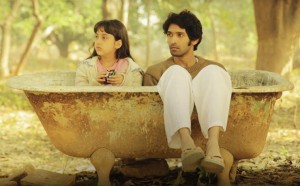
Cinematic Moment of 2017: A DEATH IN THE GUNJ
There are so many contenders for this one — from Adil Hussain’s sobbing breakdown on seeing his dad fade away only to see him live in Mukti Bhavan, Rajkummar Rao’s literal “traffic-stopping” moment in Bareilly ki Barfi and the waves of victory we feel when he “opens” the door on a lower floor in Trapped, as well as his meltdown after a fake encounter when he turns the rifle on a calm Pankaj Tripathi in Newton, to a lonely Ranbir Kapoor’s silent tears on receiving a letter about his father’s demise in Jagga Jasoos, Swara Bhaskar’s aggressive dance/standoff “performance” while her oppressive offender’s world comes crashing down towards the end of Anarkali of Aarah, and Ratna Pathak Shah’s mesmerising silhouette as she masturbates and moans to a stranger on the phone in Lipstick Under My Burkha. But none are as pitch-perfect and singularly devastating as the final seconds of Konkana Sen Sharma’s A Death In The Gunj. Everything comes together — the score, the slow-motion, the shocked expressions of a family going from casual to stunned, the sudden impulsiveness — when an under-confident, bullied black sheep named Shutu (Vikrant Massey) snatches the gun from Om Puri’s hand and threatens to explode. Instead, he implodes, shooting himself in the head, leaving us gasping for air as the desensitized family finally “feels” for the young boy whose voice they never heard.
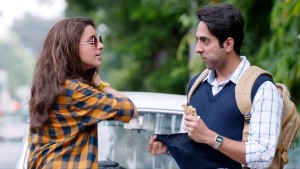
Best Mainstream Film: MERI PYAARI BINDU
Nope, it’s not a Khan or Kumar film. It’s not an Imtiaz Ali drama or Excel gangster biopic. It’s a film that, at first glance, feels familiar, boring, languid and strange. But Akshay Roy’s debut film, about a Bengali writer finding his words through the manic-pixie girl that repeatedly breaks his heart, is a patient and perceptive one. It grew on us as the year passed, and as Hindi cinema plummeted to depths that made Roy’s simple coming-of-age story stand out for its modest and sure tone. Ironically, Parineeti Chopra, as the titular character, is a little too obvious as the embodiment of aspirational flakiness. It’s Khurrana, who, with his quiet frustration and Bhadrolok-ish gait, defines what could have otherwise been a forgettable anti-romance. Instead, it assumes the status of Ekk Main Aur Ek Tu, another criminally underrated film that doesn’t cater to the concept of “happily ever after” to achieve a happy ending.
Special Mention(s): Tumhari Sulu, Badrinath ki Dulhaniya

Worst Best film: LIPSTICK UNDER MY BURKHA
Alankrita Shrivastava’s much-discussed film — thanks in no small measure to the CBFC and their archaic rules — is an ode to Indian womanhood that might have been a lesser work if not for its controversies. It had some fine actresses in rare, brave roles (Ratna Pathak Shah being the finest female performance in 2017) and relevant situations in India’s biggest “small town” (Bhopal), but the caricature-ish side acts, inconsistent narrative and a rushed, deliberately choppy climax left a lot to be desired. Lipstick is, at best, a good film that deserves to be talked about because of the current mood of the world it occupies. Its victory is in existing in a traditionally patriarchal country with a government that tried its best to suppress its voices, and not the kind of storytelling it embraces.
Special Mention(s): Anaarkali of Aarah
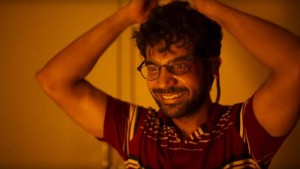
Best Film of 2017: TRAPPED
India’s first survival drama, a micro-budget film that isn’t supposed to be an awards contender because of its form, is anything but a run-of-the-mill genre vehicle. There is a deeper meaning to the concept of a young man trapped in a high-rise flat in the Mumbai skies — because of love. Because of a desire to conform. Because of the desperation to join the rat-race (a rat, in a special appearance, is Rajkummar Rao’s most effective co-actor here). There are metaphors everywhere, because the big city and its space elicits that kind of dark poetry. Rao gives the finest performance of the year, and director Vikramaditya Motwane’s channels all his own frustration of being “trapped” by pre-production hell — his last film, Lootera, released in 2013 — into a film that is as free as it is suffocating and evocative of the common man’s mental walls.
Special Mention(s): Mukti Bhawan, Newton, A Death in the Gunj, Tu Hai Mera Sunday
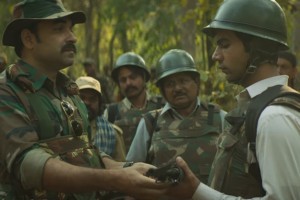
Best Film Based On Social Relevance: NEWTON
In the world’s largest democracy, it’s a miracle and testament to its excellently researched screenplay that a film about its pride and joy — the sheer scale of its nation-wide Elections — didn’t officially ruffle any feathers. Newton, widely hailed as the Indian film of the year and India’s official entry to the Oscars, deserved all the accolades it got and more. Designed around a painfully idealistic election-duty clerk (Rao, again) dispatched to carry out a voting process under security cover in a remote village in the Naxal-controlled jungles, Newton is the kind of “social-message” film that commercial Bollywood will do well to learn from. It doesn’t beat its chest and advertise its righteousness; there’s a self-awareness to its performances that allows the makers to be honest about their ideologies without compromising on their voices. And who can forget Pankaj Tripathi, in one of the most understated and beautifully felt performances of the year?
Special Mention: Secret Superstar
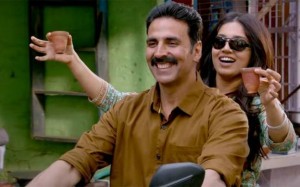
Worst Film Based On Relevance: TOILET: EK PREM KATHA
The exact opposite of Newton in every way, Toilet represents everything that is wrong with a breed of commercial filmmaking that bastardises sincere causes and the topicality of the nation in order to appear “relevant” and hard-hitting. Akshay Kumar, with his fledging political ambitions, has become the poster boy for such “masala” potboilers loosely masquerading as noble government projects. This film is also a disgrace to the craft of storytelling — there is zero personal expression, no creativity, no attempt at subtlety, a bunch of “official” PM-sanctioned dialogues and a dangerous precedent for businessmen who want to make money from the movies. This is also the worst propaganda film of all time. That it made tons of money only goes to prove how every nation gets the kind of “hits” they deserve at that point of time.
Special Mention: MOM (an awfully “wrong” rape-and-revenge drama that makes someone of Sridevi’s stature look awkward and screechy — such a shame, given that the director has the craft and sensibilities to make far smarter films)
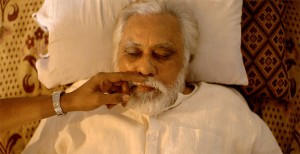
Best Underrated Performance of 2017: LALIT BEHL (MUKTI BHAVAN)
While most lead performances in the scene-stealing indies this year — Adil Hussain, Vikrant Massey, Pankaj Tripathi and Rajkummar Rao, Ratna Pathak Shah and Konkana Sen Sharma, Swara Bhaskar — have been noticed, it’s an unfortunate reality that Lalit Behl’s withering performance as Daya, the father around which Mukti Bhavan is based, to Hussain’s Rajiv, has been overlooked. Behl also appeared effectively in his son Kanu Behl’s devastating directorial debut, Titli (2015), but here he “suggests” an entire backstory and fatherhood merely by being Rajiv’s crabby old father looking for the best way to purge his sins at the “hotel of death” in Varanasi. You can tell that here was a man who must have been a terrible, brutal father — even from the reluctant chemistry between father and son, and Daya’s sudden softening in his final days, and his complete surrender to spirituality. His scenes with a woman (Behl’s real-life wife) who has come there to wait for her death, too, are endearing and lovely — and ooze the kind of maturity and wordlessness and “life” that illuminate the depth of thought in a 25-year-old filmmaker.
Special Mention: MEHER VIJ (SECRET SUPERSTAR), SEEMA PAHWA (SHUBH MANGAL SAVDHAN), SASWATA CHATTERJEE (JAGGA JASOOS)
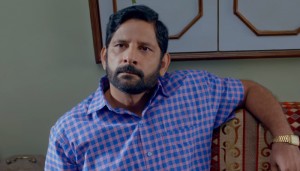
Best Villain of 2017: RAJ ARJUN (SECRET SUPERSTAR)
In a year where most small-town fathers on screen were legitimate assholes (except Pankaj Tripathi in Bareilly ki Barfi), Raj Arjun (whose resemblance to Arshad Warsi never ceases to amaze) had the tough job of heightening this caricature to dizzying levels. He wasn’t equipped with deepest of words or scenes, but the man managed to incite the kind of fear and hatred that most traumatized kids with abusive fathers will understand. He threatened, but didn’t snarl, glared and thrashed but rarely screamed, playing the misogynistic Muslim patriarch in an Islamophobic state to perfection. The reason this average film punched above its weight, its spirited female performances aside, is Raj Arjun’s all-out character, who becomes emblematic of the “all odds” in the quintessential against-all-odds underdog story.
Special Mentions: Pankaj Tripathi (Gurgaon), Saif Ali Khan (Rangoon), Sanjai Mishra (Anaarkali of Aaarah)

Worst Villain of 2017: JIM SARBH (RAABTA)
There are so many glorious contenders for this one: from Sudhir Pandey in Toilet to Viddyut Jammwal in Baadshaho to Chunky Pandey in Begum Jaan to even Shah Rukh Khan in Raees. But nothing, I repeat nothing, in the centuries to come, will ever outdo Jim Sarbh’s horrendous performance as an NRI billionaire psychopath that makes even Sushant Singh Rajput acceptable in the ghastly movie. When he appears in Sanjay Leela Bhansali’s Padmavati next year, his film career should be on the line.
Special Mention: Farhan Akhtar (DADDY)
Best Action Film of 2017: N/A
Look at the “nominees”: Tiger Zinda Hai, Naam Shabana, Commando 2, Kaabil. That’s more like the “Worst-of” list in any other nation. Let’s admit it: “action” is not our strong suit, especially when Indians these days are spoiled for choice with the sheer number of Hollywood blockbusters ruling the roost worldwide. Evolve or perish — unless you’re Salman Khan.
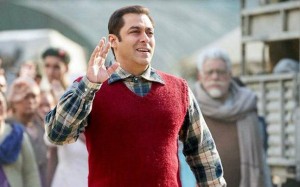
Worst Mainstream Film: TUBELIGHT
The horror of watching Salman Khan trying to “act” and Rainman his way into his fans’ puzzled, confused hearts exceeds Vikram Bhatt’s brand of horror. Kabir Khan’s “cute” film about a mentally disabled man determined to bring his missing brother back from war at the border is his worst by a country mile. It makes Ek Tha Tiger look like Citizen Kane in comparison. And that could well be the end of a director-actor partnership that was starting to show some promise after the success of Bajrangi Bhaijaan. But Tubelight is a misfire of epic proportions — one that not even the record-breaking numbers (isn’t that every second film?) of Tiger Zinda Hai can make up for.
Special Mention: Jab Harry Met Sejal

Most Disappointing Film: JAGGA JASOOS
Disappointing, only because Anurag Basu’s desi-Tintin-esque adventure had the ambition to make us expect the world from it. As it turned out, the “world” was too big a scale for him; a smaller, homegrown scale like that of Barfi’s might have helped root his mad vision and limit it to the nuances of Ranbir Kapoor’s fabulous lead turn. Basu tried to create an original desi comic-book character, build up a franchise, explore his origins and young adulthood as well as give him enough adventures to make us feel like we’ve known him forever — all through a country-hopping 2.5 hour children’s detective film. Much of it was chaotic and disjointed, and Katrina Kaif should stop appearing opposite good actors (it’s why she stood out in Tiger Zinda Hai). Some of us still enjoyed its lovely visual palette and, of course, Tutti Frutti (the affable Saswata Chatterjee), but the biggest tragedy is we might never see a Basu or one of his successors ever attempt another film like this.
Special Mention: RAEES
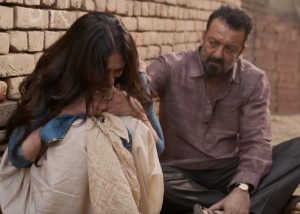
Worst Film of 2017: BHOOMI
My blood boils even at the thought of Omung Kumar still being allowed to make films in this industry. Mary Kom was bad, Sarbjit was worse, but Bhoomi is by far the most tone-deaf, insensitive, exploitative, tasteless and irresponsible rape-revenge drama ever made by a Bollywood filmmaker. Everyone involved with the writing and conceptualizing should be ashamed of their misplaced artistic sensibilities. At one point, the camera cuts from the brutalized victim’s skin at the bank of a river to Sunny Leone’s skin in an item song surrounded by horny, whisky-drinking louts. This is 2017. Sanjay Dutt could surely have not been *this* desperate to make a comeback — Shekhar Suman, really?
Special Mention: JIA AUR JIA, MACHINE, JEENA ISI KA NAAM HAI, COFFEE WITH D, PRAKASH ELECTRONICS
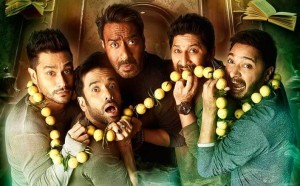
BANWORTHY FILM(S): GOLMAAL AGAIN, JUDWAA 2
Look at the brighter side — last year this category had all the “sex comedies” (Mastizaade, Kya Kool Hai Hum 3). At least this time, the awfulness is “family-friendly”. Either way, Rohit Shetty and David Dhawan make for an appropriate father-son pair as far as their idea of remakes and franchises goes. One makes Parineeti Chopra play the role of her career (ghost), and the other makes Varun Dhawan (his biological son) emulate the ultimate toxic-masculinity weirdness of Salman Khan.
Special Mention: SARKAR 3, BEGUM JAAN, JIA AUR JIA

Best Actor: RAJKUMMAR RAO (TRAPPED)
In a year full of terrific non-mainstream performances, it’s impossible to ignore the sheer domination of this terrific actor. Even in failed commercial movies like Behen Hogi Teri and Shaadi Mein Zaroor Aana, Rao lends an everyman-ness and individuality to his scenes. In Newton, we feel torn between wanting to be him and scared of being him. But in the Mumbai survival drama, Trapped, Rao gives perhaps the greatest on-screen performance of the decade — forcing writers and critics to look for metaphors and layers in a highly physical film. Rao’s performance can be mentioned in the same breath as Tom Hanks’ in Cast Away, James Franco’s in 127 Hours and Emile Hirsch’s in Into The Wild.
Special Mention: VIKRANT MASSEY (A DEATH IN THE GUNJ)
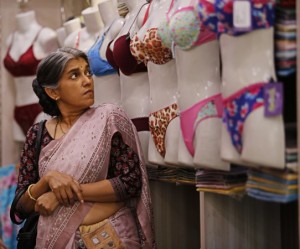
Best Actress: RATNA PATHAK SHAH (LIPSTICK UNDER MY BURKHA)
The brilliant thespian makes every pore of a 55-year-old Bhopal matriarch waking up to the concept of sexuality and eroticism come alive in a film that has enough “younger” characters and loud messages to trivialise the complexity of this role. As the frumpy maternal Buaji in a conservative Bhopal locality, she plays a woman who would have been crassly caricatured (by someone like Bindu) in a Farah Khan or Rohit Shetty “homage”. Her dreamy voice and fertile imagination makes her both funny and sad, lending gravitas to our perception of the three other women who seem to be embodying different stages of her own life.
Special Mention: SWARA BHASKAR (ANAARKALI of AARAH), KALKI KOECHLIN (RIBBON)
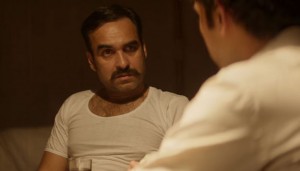
Best Supporting Actor: PANKAJ TRIPATHI (NEWTON)
There are no two ways about it: this has been Tripathi’s year as much as it has been Rajkummar Rao’s. His performance in Gurgaon is the only competitor in this category — one that he owns because he remains the best thing about one of the finest films of the year. Tripathi raises an already-excellent screenplay with the coolness of an experienced artist — feeling his character (Aatma Singh) and conveying volumes through his stern, almost aspirational presence. He is especially notable in a scene where he speaks to a TV reporter about the “circus” unfolding behind him: he is depressed at having to do his job, and amused at the irony of the attention their situation is getting. Most of all, he makes us empathize with the human within a character who might seem villainous in a conventional context; you sense so much about Singh and his muted admiration for the younger man he is often at odds with.
Special Mention: SHIV SUBRAMANIAM (TU HAI MERA SUNDAY), RAJKUMMAR RAO (BAREILLY KI BARFI), RAGHUBIR YADAV (NEWTON)
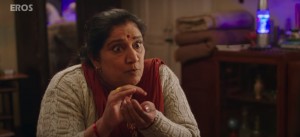
Best Supporting Actress: SEEMA PAHWA (SHUBH MANGAL SAVDHAN)
In both the middle-India films this year, Seema Pahwa subverted the pushy, small-town mother roles into something vaguely…endearing. After a while, even young viewers began to smile at her character’s (outdated) attitude. In Bareilly Ki Barfi, a calm, henpecked husband (Pankaj Tripathi) reflects her misgivings by being the ideal parent, while in Shubh Mangal Savdhan she becomes that parent without really evolving into a person with mental boundaries. The scene in which she freaks out her to-be-married daughter by airily reading her own erotic diary (complete with a few comments on her husband’s “gentleness”) makes for a brilliant depiction of generational communication. With actresses like her and actors like Tripathi, the writers don’t have to be too stubborn about the “detailing” of their scripts; the performers bring with them an interpretation that most open-minded filmmakers thrive on.
Special Mention: KALKI KOECHLIN (A Death In The Gunj), SHAHANA GOSWAMI (Tu Hai Mera Sunday)
Special Rajpal-Yadav Ham-fest Award:
Kriti Kharbanda (Shaadi Mein Zaroor Aana), Shah Rukh Khan (Raees), Richa Chadha (JIA AUR JIA), Neil Nitin Mukesh (INDU SARKAR), Rajit Kapoor (BEGUM JAAN), Kiara Advani (MACHINE)
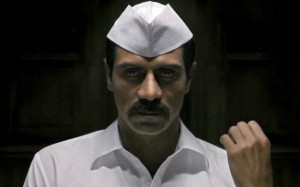
Best Actor in an Average Film: ARJUN RAMPAL (DADDY)
Ashim Ahluwalia’s Arun Gawli biopic is unexciting and too obsessed with its own craft and design. But Rampal pulls off an unlikely, relaxed performance as the infamous Maharastrian gangster-turned-politician. Perhaps he stands out because of SRK’s over-the-top “interpretation” of his Gujarati counterpart in Raees, but there’s a sincerity to Rampal’s preparation, energy and quietness that equips him with the aura of a man over-understood by his own film. It helps that he might have scripted it with himself in mind.
Special Mention: Kangana Ranaut (SIMRAN), Rajkummar Rao (Bareilly Ki Barfi)
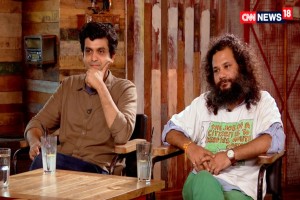
Best Screenplay: AMIT MASURKAR, MAYANK TEWARI (NEWTON)
As mentioned earlier, the screenplay of Newton is so succinct, macro-inclusive and well dramatised that it might have fooled the powers that be. It’s not just the smaller roles (Raghuvir Yadav, Anjali Patil) and the interplay between the leads, but even the tiniest of throwaway scenes — like the one towards the end where, before it shows us Newton Kumar in a neck-brace back in a “sarkaari” office, we see an unassuming Aatma Singh, finally out of official attire, in domestic form as he quietly buys groceries with his family at a store. There is so much within these scenes to understand, and not once self-explanatory or self-righteous line. Every word is a reaction to an attitude, which is what makes Newton one of the finest of our times.
Special Mention: Milind Dhaimade (TU HAI MERA SUNDAY)
Worst Screenplay: TIGER ZINDA HAI
Bhai literally plays with the screen. And our intelligence.
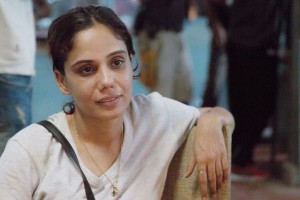
Best Production Design: Parul Sondh (DADDY)
Whether it was the gradual muting of colours from the 1970s to the late 2000s, or the construction of an entire Dagdi Chawl in Versova to represent four decades, Ms. Sondh’s immaculate and superbly researched design is the reason DADDY will be mentioned as an underrated gangster biopic in the years to come. Director Ashim Ahluwalia’s freewheeling narrative might not have done full justice to his designer’s work, but it’s never been easy to give a multi-rooted city like Mumbai a distinct “cultural hue”. Rampal looked like he grew through the eras because of his environment and not just his dodgy prosthetics. The details — in dim-lit bars, Ganesh pandals, grocery stores, godowns and prayer rooms — are what make this story more of a “film” than a movie.
Special Mention: Ashwini Shrivastav (ANAARKALI OF AARAH), Rajat Poddar (JAGGA JASOOS)
Worst Production Design: HASEENA PARKAR, INDU SARKAR
Haseena Parkar is the exact opposite of Daddy despite more or less representing different angles of the same era. Indu Sarkar is, well, just Madhur Bhandarkar Bhandarkar-ising the 1970s.
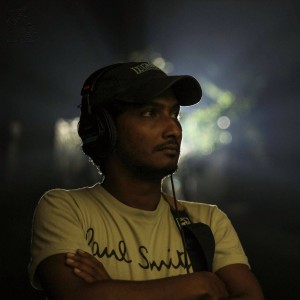
Best Sound Design: ANISH JOHN (TRAPPED)
Trapped is a triumph in spacial filmmaking and the perfect allegory for low-budget cinema. Every aspect comes together seamlessly because of Motwane’s technical background — none more so than Anish John’s reverberations of “claustrophobia” lodged deep within a terrific score. John manufactures an atmosphere of a simple apartment — one that we know all too well in the everyday mundanity of life, but rarely ever recognise when pushed into a desperate corner. Fear and suburbia sounds different in the same space, and that’s something the makers managed to create without ever being too obvious about it.
Special Mention: Nihar Ranjan Samal (MOM)
Worst Sound Design: BHOOMI
Whoever did it, it’s probably director Omung Kumar’s fault. Everything is Kumar’s fault. The loudness of assault and exploitation and crass commercialism and skin has a sound — and I’m too deaf to hear it anymore.
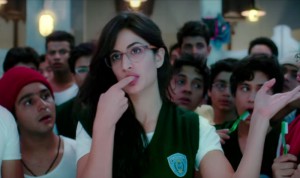
Worst Actress: KATRINA KAIF (JAGGA JASOOS)
I don’t know what Anurag Basu was thinking, but casting Katrina Kaif as a writer and “storyteller” reading out Jagga Jasoos’s Asterix-style adventures to a group of kids is, well, a brain-fade of the highest level. This, after getting both Priyanka Chopra and Illeana D’Cruz spot on in Barfi! Kaif’s Hindi diction still refuses to change, despite years of working in an industry where adapting would be the only choice for less “glamorous” actresses. Yet, she has not improved one bit since her debut years ago, and she continues to be cast the London-return rootless NRI whose accent can’t even be justified by any script’s obvious backstories. Here, opposite Ranbir Kapoor as a “journalist”, she is exposed, despite occupying a larger-than-life fairytale where everything goes. With her, nothing goes.
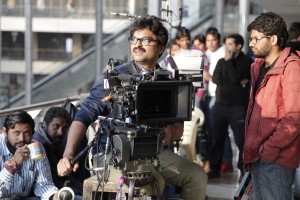
Best Cinematography: Vivek Shah (GURGAON)
It’s only appropriate that the most contextual and evocative imagery of the year occurs in a film directed by a cinematographer (Shanker Raman). There’s a lot of focus on style and atmosphere in Raman’s Gurgaon — an anti-Titli in that sense, despite being sort of a spirit sister to Kanu Behl’s dark ghastly-Delhi-family drama. As a result, Gurgaon is hypnotic and smart, grainy and murky, and elevates an inconsistent narrative into memorable-noir category. It’s easy to say that Jagga Jasoos boasted of the most beautiful “photography” of the year — it did, in every way — but the images moved for more of a reason, in less of an environment, in the very intriguing Gurgaon.
Special Mention: Siddharth Diwan (TRAPPED)
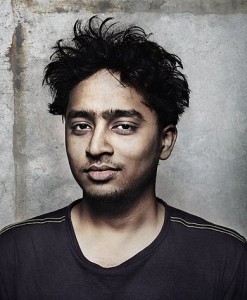
Best Editing: Nitin Baid (TRAPPED)
Trapped, in a sense, is one single scene — a phase that will be recollected without too many cuts and slices in protagonist Shaurya’s mind when he reminisces about his near-death experience. Yet, Baid’s brilliantly paced editing ensures that there is an energy and tension to everything Shaurya thinks or does within the high-rise apartment. Perhaps the most suspenseful moment of the year comes when he climbs down to a lower floor and heads to open the door from inside. The silence, just before he clicks open the handle, is sublime, leading to an applause-worthy victory, all thanks to the editor’s precise buildup right up to Shaurya’s last-gasp attempt. This is one for the film schools.
Special Mention: Aarti Bajaj (A DEATH IN THE GUNJ)
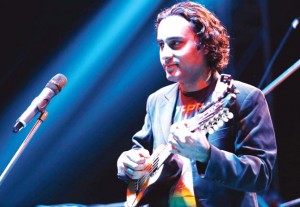
Best Background Score: TAJDAR JUNAID (MUKTI BHAWAN)
Mukti Bhawan’s folksy, journeyman and Gustavo-Santaolalla-ish score is down to the versatile 33-year-old indie musician, Tajdar Junaid, who has already been making waves as an independent stage performer for some years. Director Shubhashish Bhutiani allows us to drift between the father and son in his meditation on death and salvation through the unassuming music — which one wouldn’t necessarily associate with a story set in a very exotic “Indian” surrounding (Varanasi). This is the perfect example of turning convention on its head in a film that depends highly on the sounds between the words spoken and feelings depicted.
Special Mention: Sagar Desai (A DEATH IN THE GUNJ)
Film That Didn’t Deserve Hate: PHILLAURI
Sure, it was long and boring and self-indulgent and distracted, with the most ridiculously sentimental final shot of the year, but Anshai Lal’s film was also a brave shot in the dark. It goes well with producer Anushka Sharma’s template of choosing new voices, irrespective of the end result.
Best Ensemble: A DEATH IN THE GUNJ
Konkana Sen Sharma’s first film is full of brilliant actors in a setting that seems to bring out the hidden whispers in a family house as strongly as Kapoor & Sons (Since 1921) and Monsoon Wedding. The psychological edge this film depicts is down to everyone’s voices — attitudes that are built over time and designed to gradually push a suppressed mind out of bounds. Vikrant Massey stands out only because it ends up being about him. Everyone, from Kalki Koechlin to Ranvir Shorey to Jim Sarbh, Tillotama Shome and Om Puri, is in on the sensitivity of a film and its lost little boy.
Special Mention: LIPSTICK UNDER MY BURKHA, SHUBH MANGAL SAVDHAN
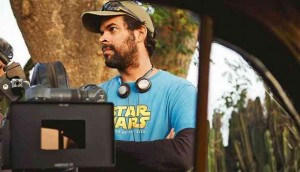
Best Director: Vikramaditya Motwane (TRAPPED)
Motwane deserves accolades as much as Rajkummar Rao and the rest of his stellar crew, for even attempting a survival drama in a country averse to genre cinema. He remains one of the most versatile filmmakers here; from Udaan to Lootera to Trapped, no two films look like they are made by the same person. Long may he be given the space and resources for the kind of movies he wants to make — hopefully, we won’t have to wait another four years to know.
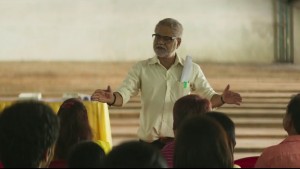
Best Cameo: Sanjai Mishra (NEWTON)
Mishra’s bit role as an election supervisor “advising” the new recruits before the big day is laced with the kind of humanity we aren’t familiar with from those working within the system. His lines to Newton Kumar [“Your problem is that you take too much pride in your honesty”] form the backbone of how we perceive the young man for the rest of the film. It demonstrates the kind of laidback wisdom that only comes from years of cynicism and experience — a different, older version of Aatma Singh (Pankaj Tripathi) after a weathered career. Mishra has that mentor-like quality, perhaps culled from years of being on the sidelines of an unforgiving profession.
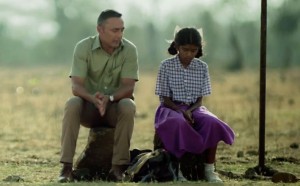
Best Debutant (Male or Female): ADITI INAMDAR (POORNA)
Rahul Bose, the actor, may have been the weakest link in his own film, but young, committed Aditi Inamdar drives the inspiring story about the youngest girl to climb Mount Everest. In a very physical, hardworking performance, she raises the biopic above its conventional motifs and lends a real kind of sweat and tears to the famous journey — one that young Mayur Patole, too, managed in Budhia Singh: Born To Run a year ago. More than anything, she fights like a mountaineer.
Special Mentions: Madiha Imam, Shreya Chaudhary (DEAR MAYA)
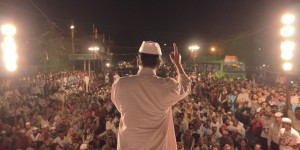
Best Documentary: AN INSIGNIFICANT MAN
At long last, the documentary by Khushboo Ranka and Vinay Shukla found commercial release four years after its relevance passed. Yet, purely as a work of filmmaking and storytelling, this documentary about the behind-the-scenes functioning of the Aam Aadmi Party and its leader Arvind Kejriwal leading up to the Delhi elections is a fantastic non-fiction “thriller” of sorts. It is designed like a whodunnit, not once compromising on its goals to lend the narrative this kind of obvious gravitas. This is a major achievement, given the high-profile subject and much-publicized faces in these frames.







Leave A Comment
You must be logged in to post a comment.